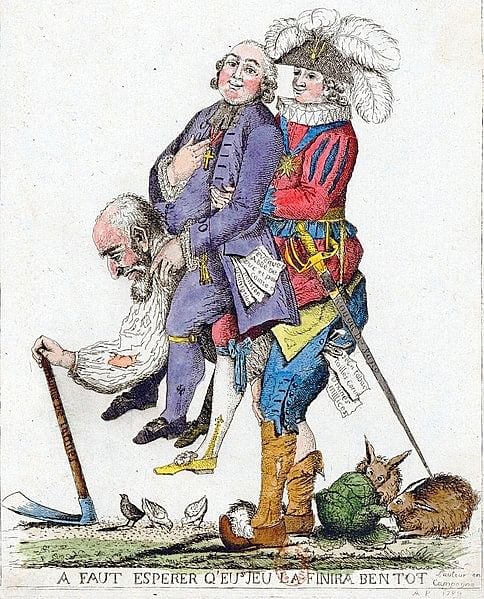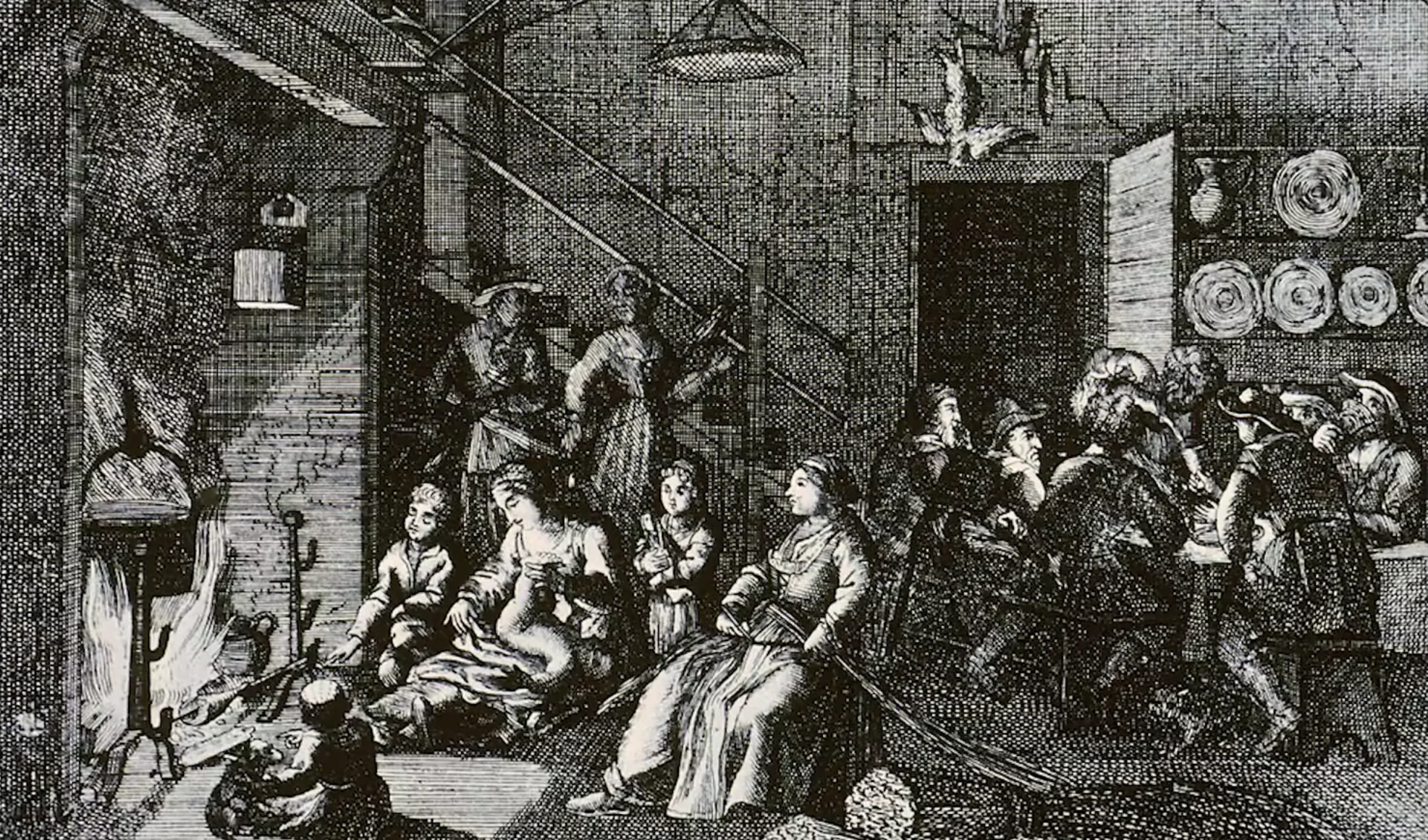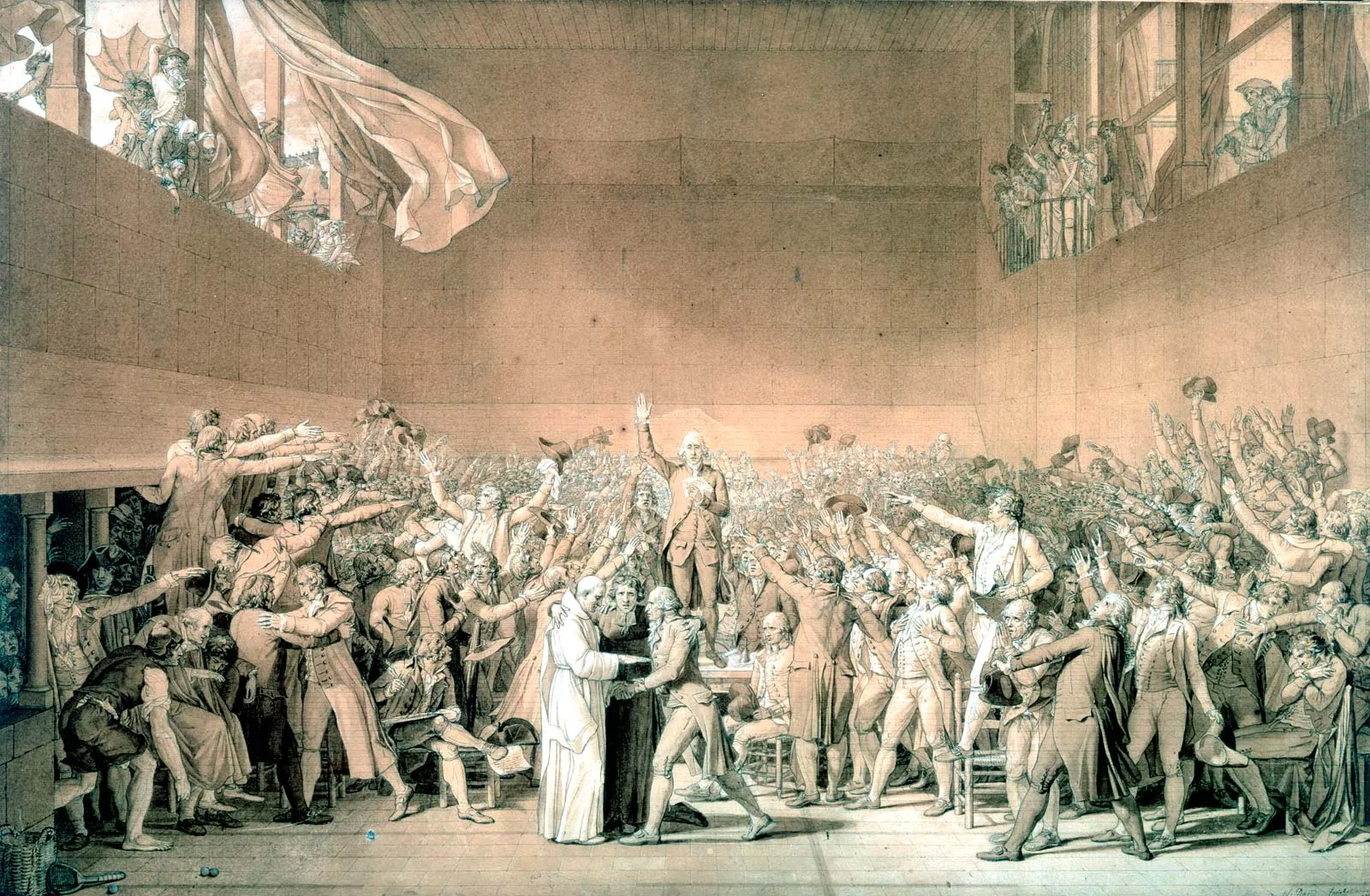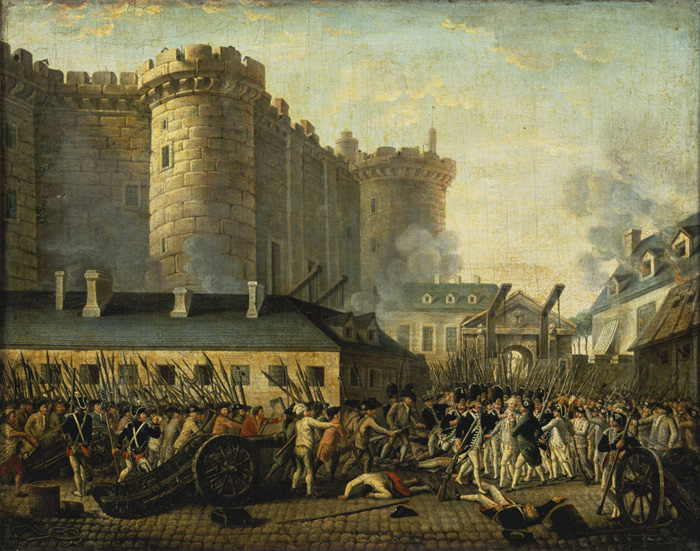
The Three Estates
Courtesy of World History Encyclopedia

The Three Estates
Courtesy of World History Encyclopedia
In 1789, France was divided into three social classes: the First Estate comprised of the clergy, the Second Estate made up of nobles and the Third Estate consisted of the general population.
The government was in debt due to reckless spending and wars. Food prices soared after poor harvests in the late 1700s which left members of the Third Estate helplessly vulnerable.

Peasant Gathering, Henri Bonnart
Courtesy of Choices | Brown University

The Oath of the Tennis Court, Jacques Louis David
Courtesy of the Metropolitan Museum of Art
“Public discussion no longer troubles itself with the king, with despotism or with the constitution. It has become a war between the Third Estate and the other two classes.” ~ Mallet du Pan, French journalist, January 1789
King Louis XVI summoned the Estates-General in hopes of saving France from bankruptcy. He asked each estate to prepare cahiers listing out their grievances.
The Third Estate, who shouldered the majority of the taxes, proposed reforms regarding equal rights and representation.
“In every political society, all men are equal in rights. All power emanates from the nation…desired union of citizens of all classes in a common and general representation and deliberation… freely elected by each class.” - The Cahier of the Third Estate of Paris (1789)
The Third Estate’s cries for reform were ignored. In June 1789, delegates from the estate declared themselves the National Assembly which represented the entire France.
Rumors of King Louis XVI dissolving the assembly contributed to the French Revolution, and resulted in the Storming of the Bastille by the people of Paris. The Bastille symbolized centuries of abuse and oppression to the citizens of France which made it a perfect symbol of this revolution.

Storming of the Bastille, July 14th, 1789
Courtesy of the National Archives
“Tell them, with a clear and decided tone, that ‘peace is not peace, without reform:’ that ‘your discontents can never be allayed, without the restoration of equal rights, and equal laws, and the adoption of a pure and independant organ, through which the opinions, not of a tenth-part, but of the whole nation, can be freely delivered, and distinctly heard.’” - John Thelwall, The Rights of Nature against the Usurpations of Establishments (1796)
“the liberty of man been restrained…being choked at the source…the end of government ought to be, to destroy this inequality by protecting the weak. Instead of which, it has always leaned to the opposite side, wearing itself out by disregarding the first principle of it’s organization” - Mary Wollstonecraft, An Historical and Moral View of the Origin and Progress of the French Revolution, 1795